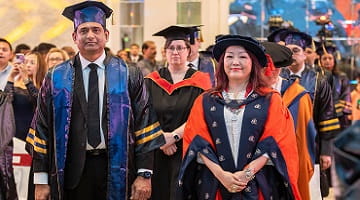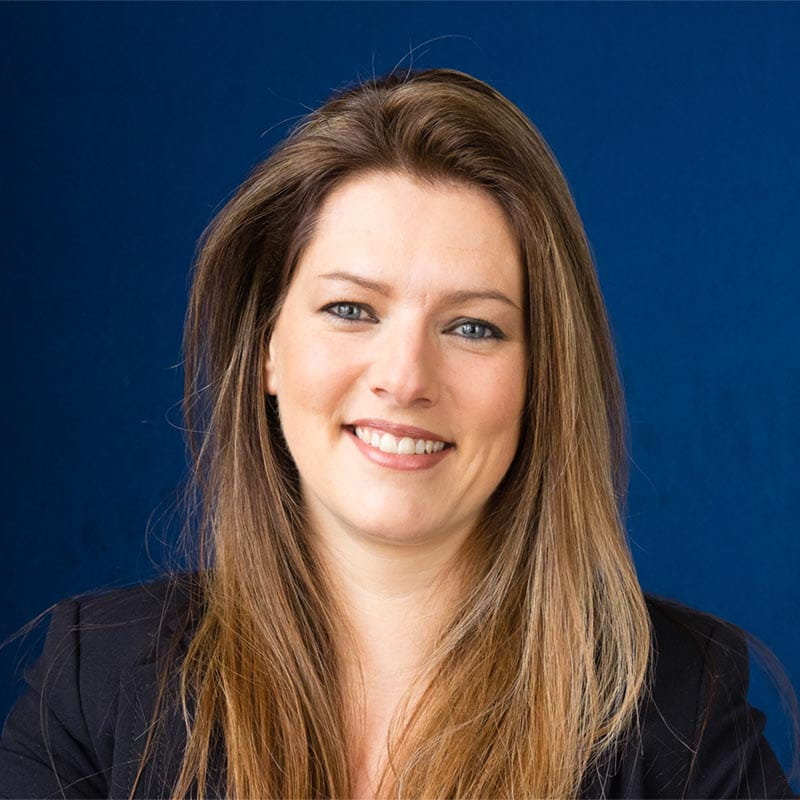2024/25 entry Applications also open for 2025/26
Doctor of Education
About this course
Our Doctor of Education programme will enhance your understanding of education in the broadest sense, helping you to directly relate your learning to current practice.
- Ideal for professionals working in the education sector
- Harness your passion and experience
- Take your personal development and pedagogical knowledge to the next level
- Enhance your understanding of how education works
- Relate your learning back to your practice
This specially designed programme gives you the chance to reflect on how you deliver your role and how you can transform practice — for both yourself and others.
Focusing on education in its broadest sense, the EdD is relevant to people who work in a wide variety of educational settings, including: the compulsory and non-compulsory sectors, formal and non-formal education settings, and professional, workplace and life-long learning.
At LJMU's School of Education, we are an active community of academics and students, who are committed to education that inspires learning and enriches communities.
Our high quality research and teaching environment, encourages students to analyse the political, economic, social, cultural, environmental and technological context of educational theory and practice.
You will join a dynamic and diverse group of people who share a deep commitment to the investigation and enhancement of educational experiences of individuals, families and communities in a wide range of settings and in collaboration with many different partners. These include schools; early, further and higher education providers, as well as voluntary, public and private sector organisations.
Fees and funding
There are many ways to fund postgraduate study for home and international students
Fees
The fees quoted at the top of this page cover registration, tuition, supervision, assessment and examinations as well as:
- library membership with access to printed, multimedia and digital resources
- access to programme-appropriate software
- library and student IT support
- free on-campus wifi via eduroam
Additional costs
Although not all of the following are compulsory/relevant, you should keep in mind the costs of:
- accommodation and living expenditure
- books (should you wish to have your own copies)
- printing, photocopying and stationery
- PC/laptop (should you prefer to purchase your own for independent study and online learning activities)
- mobile phone/tablet (to access online services)
- field trips (travel and activity costs)
- placements (travel expenses and living costs)
- student visas (international students only)
- study abroad opportunities (travel costs, accommodation, visas and immunisations)
- academic conferences (travel costs)
- professional-body membership
- graduation (gown hire etc)
Funding
There are many ways to fund postgraduate study for home and international students. From loans to International Scholarships and subject-specific funding, you’ll find all of the information you need on our specialist postgraduate funding pages.
Please be aware that the UK’s departure from the EU may affect your tuition fees. Learn more about your fee status and which tuition fees are relevant to you.
Employability
Further your career prospects
LJMU has an excellent employability record with 96% (HESA 2018) of our postgraduates in work or further study six months after graduation. Our applied learning techniques and strong industry connections ensure our students are fully prepared for the workplace on graduation and understand how to apply their knowledge in a real world context.
The student experience
Discover life as a postgraduate student at LJMU.
News and views
Browse through the latest stories and updates from the University and beyond
Course modules
Discover the building blocks of your programme
This course is currently undergoing its scheduled programme review, which may impact the advertised modules. Programme review is a standard part of the University’s approach to quality assurance and enhancement, enabling us to ensure that our courses remain up to date and maintain their high standard and relevancy.
Once the review is completed, this course website page will be updated to reflect any approved changes to the advertised course. These approved changes will also be communicated to those who apply for the course to ensure they wish to proceed with their application.
There are four taught modules, a thesis and a reflection module.
Core modules
The Education Professional
10 credits
Students will look at their professional work in education alongside key academic ideas about identity, culture, leadership and change.
Theory, Practice and Policy in Education
20 credits
Students will interrogate literature, research findings and policies that shape education practice.
Thesis
240 credits
Students will undertake research in an area relevant to their own professional practice.
Reflection
60 credits
Students will undertake a reflective process capturing their personal development, experiences and the knowledge, skills and understanding developed throughout the programme and including a potential impact analysis and dissemination plan.
Planning for Educational Research
30 credits
Students will consider the different key elements of appropriate and effective educational research design.
Teaching
An insight into teaching on your course
Study hours
The programme is in two parts: a two-year taught element followed by a two and a half year thesis phase. The first part is delivered via bootcamps (Friday evening/Saturday all day), which take place once a month from September (exact dates will be confirmed and the frequency may vary slightly). The second part involves working closely with a supervisor in the development, management and writing of a significant piece of research.
Teaching methods
The Doctor of Education degree programme emphasises the development of leading edge knowledge to enhance professional practice in education. Your supervisor will support you to:
- contribute to the creation of new knowledge through original research and other aspects of advanced scholarship
- extend the forefront of educational practice by producing academic work that merits publication
- systematically analyse a substantial body of contemporary knowledge associated with their area of professional practice
- conceptualise, design and implement research that generates new knowledge, applications or theoretical understanding at the forefront of professional practice in education
- critically reflect on the relationship between theory and practice in education
Assessment
How learning is monitored on your programme
To cater for the wide-ranging content of our courses and the varied learning preferences of our students, we offer a range of assessment methods on each programme.
Two of the major assessed pieces in the taught phase will 'mimic' journal articles with the expectation that the material submitted should be of publishable quality. You will be encouraged to follow up your success in these tasks by submitting the pieces to peer-reviewed journals. Additional assessment tasks include a presentation and aligned reflection on professional identity. Finally, you will submit a research proposal, designed to prepare you for working on your thesis.
The thesis is 60,000 word document, which is complemented by a 5,000 word reflection on your learning in an academic and professional context. Your reflection will also discuss the practical applications of your thesis findings, and will be assessed by a viva voce (oral examination).
The assessment strategy is based on skills and intellectual preparation for the thesis phase, along with an emphasis on factors associated with the dissemination.
Course tutors
Our staff are committed to the highest standards of teaching and learning
Dr Diahann Gallard
Programme Leader
Diahann is the Programme Leader of the Doctor of Education (EdD) programme in the School of Education. She is passionate about wellbeing in the education context and the development of education leaders. Diahann's research interests are varied and interdisciplinary and include; mental health initiatives in schools, education of children in secure accommodation (children who are locked up and infants who are resident in the secure estate) and educational anthrozoology/animal-supported learning in education settings.
Being part of the EdD programme gives you an opportunity to unravel the multi-disciplinary nature of education and gain skills for making an original contribution to knowledge and practice
School facilities
What you can expect from your School
Based in the new Education Building in the heart of the Mount Pleasant campus, the School of Education features a wide range of cutting-edge facilities, including a pedagogy room, lecture rooms, computing facilities and a nearby Outdoor Learning Zone for our Natural Curriculum projects. Students also benefit from independent study spaces, a close-by cafeteria and library, and access to student welfare and support.
Entry requirements
You will need:
Qualification requirements
Postgraduate degree (required for research programmes)
- to demonstrate successful masters level study or equivalent
Undergraduate degree
- a good first degree (usually 2:1)
Alternative qualifications considered
- experience commensurate with undertaking a professional doctorate. This usually means that you will have a professional role in a compulsory, tertiary, workplace or lifelong educational setting.
- In exceptional cases, students with a Masters in a different subject area who can demonstrate substantial experience in education may be eligible
Additional requirements
-
Relevant work experience
- experience commensurate with undertaking a professional doctorate. This usually means that you will have a professional role in a compulsory, tertiary, workplace or lifelong educational setting.
International requirements
-
IELTS
- IELTs (or equivalent) score of 7.0, with at least 6.5 in each category
Further information
-
Extra Requirements
- International students requiring a student visa are not eligible to study this programme
Application and selection
Securing your place at LJMU
To apply for this programme, you are required to complete an LJMU online application form. You will need to provide details of previous qualifications and a personal statement outlining why you wish to study this programme.
The University reserves the right to withdraw or make alterations to a course and facilities if necessary; this may be because such changes are deemed to be beneficial to students, are minor in nature and unlikely to impact negatively upon students or become necessary due to circumstances beyond the control of the University. Where this does happen, the University operates a policy of consultation, advice and support to all enrolled students affected by the proposed change to their course or module.










